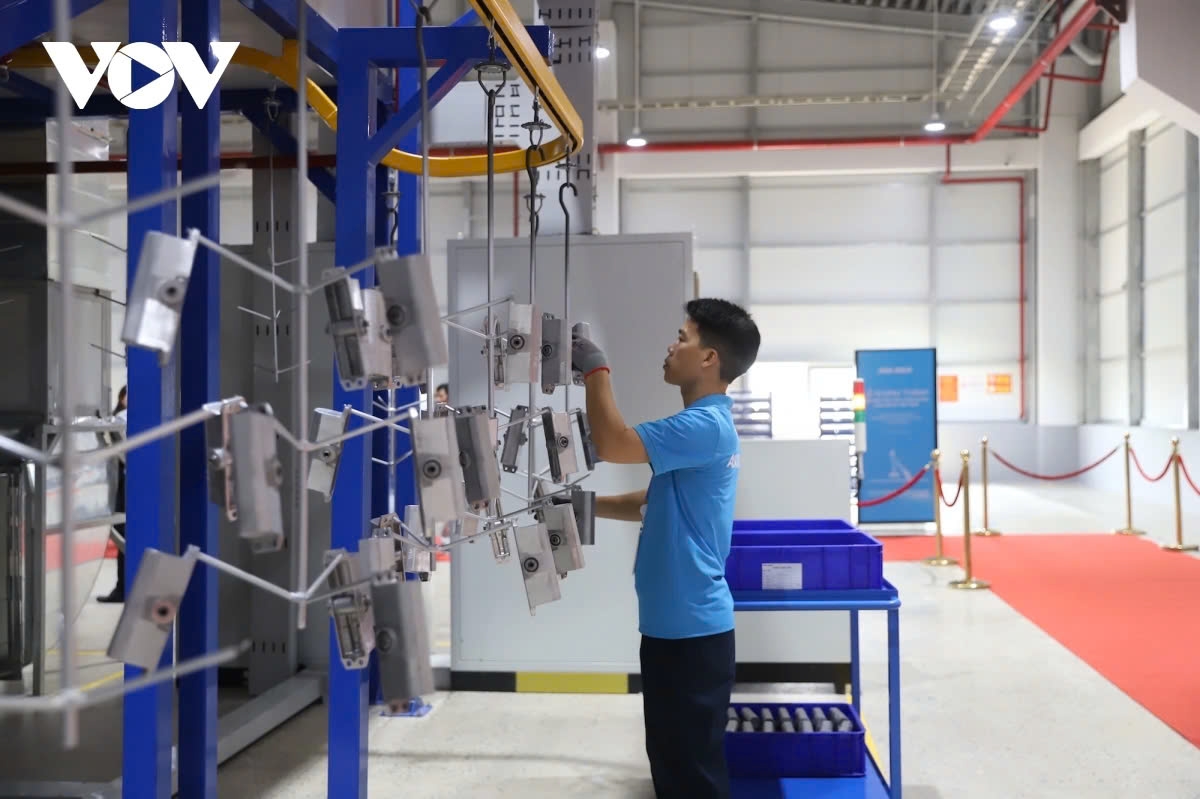Northern port city of Hai Phong – a magnet to foreign investment
Society – Economy - Ngày đăng : 15:56, 29/12/2024

One highlight is the groundbreaking of Ecovance’s high-tech biodegradable material factory, a project by SK Group of the Republic of Korea in Dinh Vu Industrial Park in May 2024. With an initial investment of over US$100 million, the project is expected to scale up to US$500 million by 2030. This marks SK Group’s first direct investment in Vietnam and a milestone in Hai Phong’s pursuit of eco-friendly, high-tech foreign investments.
According to Yang Ho Jin, chairman and CEO of Ecovance Vietnam, the project reached 60% completion by the end of December 2024 and is slated to begin operations by the end of 2025. He emphasized the city’s unwavering support in expediting administrative processes and resolving obstacles.
“Given such support, if this project succeeds, we will consider doubling or tripling our investments here,” he stated.
Hai Phong’s appeal to international investors stems from its strategic location as the largest port city in Northern Vietnam, alongside its modern infrastructure, and relentless efforts to improve the investment climate. Large firms such as LG, Bridgestone, and Pegatron have made the city their strategic investment base. In 2024, the city achieved 235% of its FDI target, securing US$4.7 billion in foreign investments and ranking among the top localities in attracting foreign investment in Vietnam.
FDI projects in Hải Phòng are increasingly shifting toward large-scale, high-tech, and environmentally friendly initiatives that deliver high value-added products integrated into global supply chains.
At the inauguration of Assa Abloy Vietnam’s factory in DEEP C2 Industrial Zone in November 2024, Martin Poxton, Executive Vice President and Head of Greater China and South East Asia of Sweden's Assa Abloy Group, highlighted the city’s potential for green and sustainable development.
“The Assa Abloy Vietnam factory will embark on a journey to become one of the world's leading high-tech facilities. We will contribute to job creation, expand local supply chains, and support the development of the local community. Additionally, we are committed to continuous investment and upgrading of equipment and infrastructure to achieve our goals of reducing carbon emissions by 50% by 2030 and reaching net-zero emissions by 2050,” said Poxton.
Hai Phong has long been a leader in attracting FDI, averaging US$3.6 billion annually over the past five years. The city has drawn over 1,000 FDI projects with a total capital of US$32 billion, accounting for 7% of the country’s total FDI. By 2025, the FDI economic sector is expected to generate 35% of the city’s gross regional domestic products (GRDP).
Le Tien Chau, Secretary of the Hai Phong Party Committee, underscored the vital role of FDI enterprises in the city’s development, saying “Foreign investments are not only a crucial component of social capital but also a driving force in the city's socioeconomic growth. FDI enterprises are not just partners but honorary citizens of Hai Phong.”

Recently, the government approved the establishment of the Southern Coastal Economic Zone, spanning 20,000 hectares, as a green and circular economic model. With breakthrough policies and mechanisms, the zone is expected to boost Hai Phong’s development and drive growth in the Red River Delta region.
During a November 2024 meeting with Hai Phòng’s leadership, Party General Secretary To Lam praised the city’s achievements in FDI attraction but noted the lack of integration between FDI and local enterprises. He called for innovation, technological adoption, and a clear investment strategy to avoid becoming a “dumping ground” for outdated technologies.
“Hai Phong must position itself as a hub of innovation and entrepreneurship. We need to proactively attract cutting-edge technologies and industries and ensure the engagement of local businesses in global supply chains. This will build an independent, self-reliant, and internationally competitive economy,” he stated.
The General Secretary also urged Hai Phong to fully mobilize social resources, accelerate modernization, strengthen regional connectivity, and develop into a smart, modern, and livable city.
